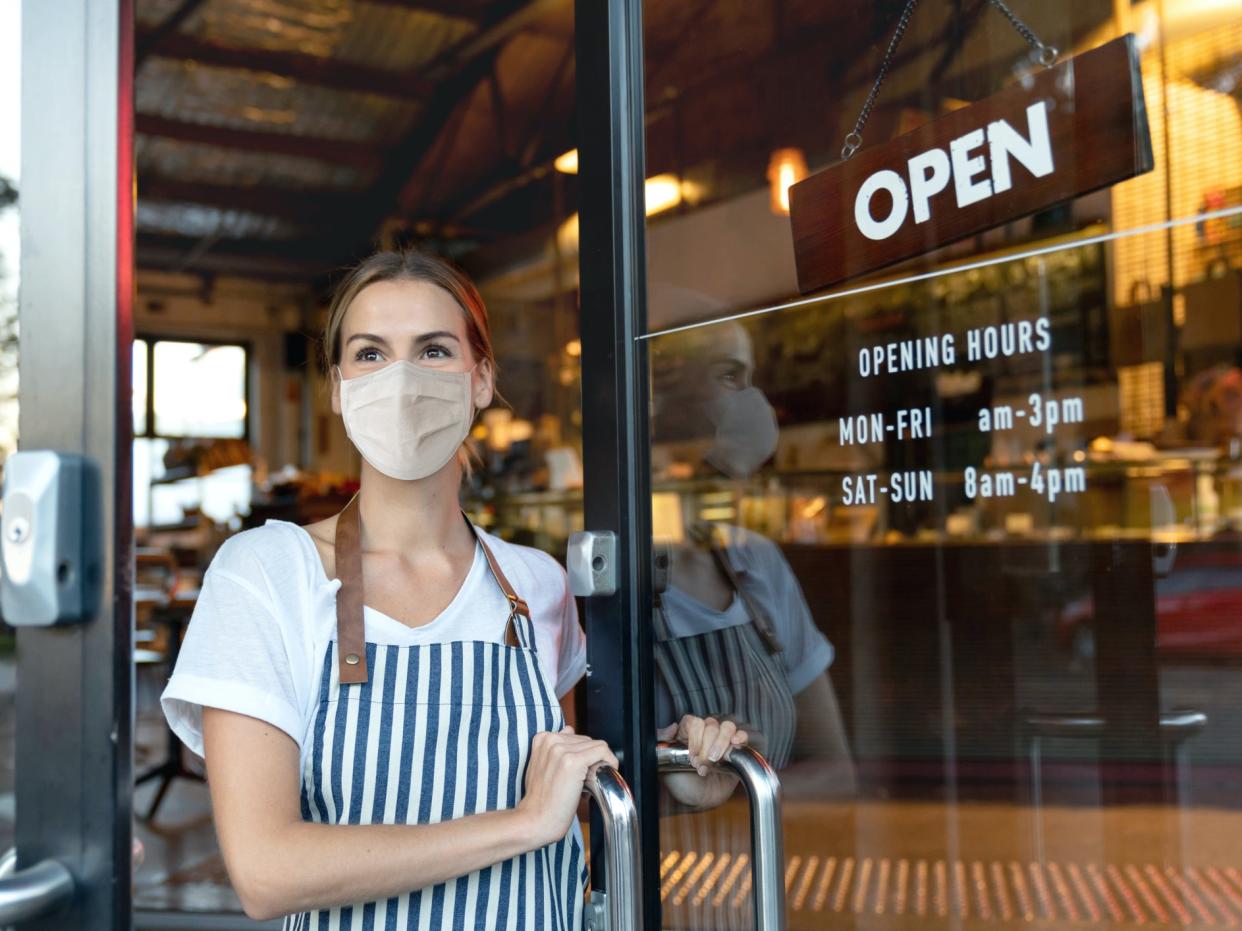Second national lockdown: What businesses will close and which will remain open?

Boris Johnson has announced that England will enter a four-week lockdown as of Thursday 5 November to curb the spread of coronavirus.
On Saturday 31 October, the prime minister announced the new measures during a press conference at Downing Street alongside chief scientific adviser Sir Patrick Vallance and chief medical officer Professor Chris Whitty.
The new rules and restrictions will be imposed across England, replacing the current three-tier ‘traffic light’ system.
Mr Johnson had previously said that a short, sharp lockdown or “circuit breaker” as recommended by scientific advisers, like the “Firebreaker” imposed in Wales, would not be necessary.
The U-turn was made after government scientists showed the prime minister papers predicting that coronavirus deaths this winter could surpass the 85,000 envisaged in the government’s “worst case scenario”.
During the press conference, Mr Johnson said: “Our hope was that by strong local action, strong local leadership, we could get the rates of infection down where the disease was surging”, but that “the virus has been spreading even faster than the reasonable worst-case scenario of our scientific advisers”.
“I’m afraid, from Thursday, the basic message is the same: Stay at home, protect the NHS, and save lives," he added.
National restrictions will apply in England from 5 November until 2 December.
You must stay at home, with a limited set of exemptions.
After 4 weeks we will look to return to a local and regional approach, based on the latest data.
https://t.co/shgzOurdZC pic.twitter.com/7j9DDayqxr— UK Prime Minister (@10DowningStreet) October 31, 2020
Mr Whitty said that “the prevalence of this disease has been going up extremely rapidly over the last few weeks, having been very flat over spring and summer”, with daily cases of coronavirus averaging around 50,000.
The measures will remain in place until 2 December.
So what do the new restrictions mean for businesses and which ones will be ordered to close again? Here’s everything you need to know.
Supermarkets
Supermarkets will be able to remain open as usual throughout the duration of the four-week lockdown.
This includes food shops, supermarkets, garden centres and certain other retailers providing essential goods and services. The government has asked all essential retail to follow Covid-secure guidelines to protect customers, visitors and workers.
Unlike Wales, where some supermarkets were banned from selling non-essential items, such as clothes and hardware, stores in England can continue to sell all and any goods.
Non-essential shops
All non-essential retail will be forced to close, including, but not limited to clothing and electronics stores, vehicle showrooms, travel agents and betting shops.
The government website adds that auction houses, tailors, car washes, tobacco and vape shops will also shut.
However, it adds that non-essential retail can remain open for delivery to customers and click-and-collect.
During his speech, Mr Johnson said: “I'm afraid non-essential shops will all be closed - though click and collect services can continue and essential shops will remain open, so there is no need to stock up.”
Pubs and restaurants
Just like the first national lockdown which started in March, pubs, bars and restaurants will be forced to close completely.
They can however still provide takeaway and delivery services but, takeaway of alcohol will not be allowed.
Gym
Indoor and outdoor leisure facilities such as bowling alleys, leisure centres and gyms and sports facilities will have to close.
This includes venues such as swimming pools, golf courses and driving ranges, dance studios, stables and riding centres, soft play facilities, climbing walls and climbing centres, archery and shooting ranges, water and theme parks.
Hair and beauty salons
Just like the first lockdown, all personal care facilities such as hair, beauty and nail salons will be asked to close.
The rules will also apply to tattoo parlours, spas, massage parlours, body and skin piercing services, non-medical acupuncture, and tanning salons.
This evening, Prime Minister @BorisJohnson announced a national lockdown beginning on Thursday 5th November until Wednesday 2nd December. All personal care businesses (non-essential retail) are to be shut, including salons, retail and mobile services.https://t.co/c7HdaiihJk
— britishbeautycouncil (@bbeautycouncil) October 31, 2020
Cinemas and museums
All entertainment venues are required to close for the four-week lockdown.
The government has confirmed that this will include venues such as theatres, concert halls, cinemas, museums and galleries.
Casinos, adult gaming centres and arcades, bingo halls, bowling alleys, concert halls, zoos and botanical gardens will also have to shut.
Hotels and hostels
Hotels, hostels and other accommodation should only open for those who have to travel for work purposes and for a limited number of other exemptions which will be set out in law.
Under the new rules, all outbound international travel will be banned, except for work and travel within the UK will also be discouraged.
Read more
New lockdown rules UK: Latest restrictions for the four week lockdown


